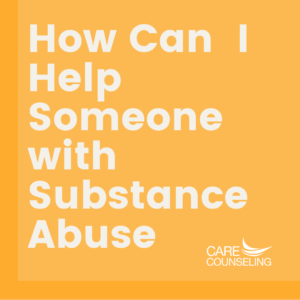How Can I Help Someone with Substance Abuse?
 Witnessing a loved one struggle with substance abuse can be a challenging and emotional experience. It’s natural to want to help, but knowing the right way to do so can be daunting. In this blog, we’ll provide guidance on how you can help someone with substance abuse, offering support and resources to aid in their recovery journey.
Witnessing a loved one struggle with substance abuse can be a challenging and emotional experience. It’s natural to want to help, but knowing the right way to do so can be daunting. In this blog, we’ll provide guidance on how you can help someone with substance abuse, offering support and resources to aid in their recovery journey.
Understanding Substance Abuse
Before we dive into how to help, it’s crucial to understand what substance abuse is and how it affects individuals. Substance abuse refers to the harmful or hazardous use of psychoactive substances, including alcohol and illicit drugs. It is characterized by a pattern of behaviors that lead to physical, mental, and social harm.
- Educate Yourself
The first step in helping someone with substance abuse is to educate yourself about the issue. Learn about the specific substances they are using, their effects, and the signs and symptoms of addiction. Understanding the science and psychology behind addiction can provide valuable insights into the challenges your loved one is facing.
- Communicate Openly and Non-Judgmentally
Effective communication is key. Approach your loved one with empathy, compassion, and a non-judgmental attitude. Express your concern for their well-being, emphasizing that you care about them and their health.
- Choose the Right Time and Place
Select an appropriate time and place for your conversation. Ensure it’s a safe and private environment where your loved one feels comfortable opening up.
- Listen Actively
During the conversation, focus on active listening. Allow your loved one to express themselves without interruption. Avoid giving unsolicited advice or passing judgment. Your role is to provide support and understanding.
- Offer Help and Support
Let your loved one know that you are there to support them throughout their journey to recovery. Offer assistance in finding treatment options, attending therapy sessions, or seeking support groups.
- Encourage Professional Help
Substance abuse often requires professional intervention. Encourage your loved one to seek help from a healthcare provider, therapist, counselor, or addiction specialist. Offer to assist them in finding and accessing appropriate treatment resources.
- Set Boundaries
It’s essential to establish healthy boundaries while supporting your loved one. These boundaries should protect your own well-being and prevent enabling behaviors. Be clear about the consequences of their actions and stick to your boundaries.
- Avoid Enabling Behaviors
Enabling behaviors can inadvertently perpetuate substance abuse. Avoid providing financial support for substances, covering up their actions, or minimizing the consequences of their behavior.
- Attend Support Groups
Consider joining support groups for friends and family members of individuals with substance abuse issues. These groups offer a safe space to share experiences, gain insights, and receive guidance from others who have faced similar challenges.
- Self-Care
Supporting someone with substance abuse can be emotionally draining. Prioritize self-care to maintain your own well-being. Seek support from friends, family, or a therapist if needed.
- Stay Patient
Recovery from substance abuse is a process that may involve setbacks. Stay patient and understanding, recognizing that relapses can occur. Encourage your loved one to continue seeking help and support, even if they experience setbacks.
- Be Prepared for Resistance
It’s common for individuals with substance abuse issues to resist help initially. They may deny their problem, become defensive, or refuse treatment. Be prepared for this resistance and continue expressing your concern and support.
- Offer Positive Reinforcement
Acknowledge and celebrate small achievements and milestones in your loved one’s recovery journey. Positive reinforcement can be a powerful motivator.
- Recognize the Role of Co-occurring Disorders
Many individuals with substance abuse issues also have co-occurring mental health disorders. Be aware of the potential presence of these disorders and the need for integrated treatment.
- Seek Professional Guidance for Yourself
Supporting someone with substance abuse can be emotionally taxing. Consider seeking guidance from a therapist or counselor to help you navigate the complexities of the situation and maintain your own mental and emotional well-being.
Helping someone with substance abuse requires patience, empathy, and a deep commitment to their well-being. By educating yourself, fostering open communication, offering support, and encouraging professional help, you can play a vital role in their journey to recovery. Your support and understanding can make a significant difference in their path to healing and a substance-free life.



























